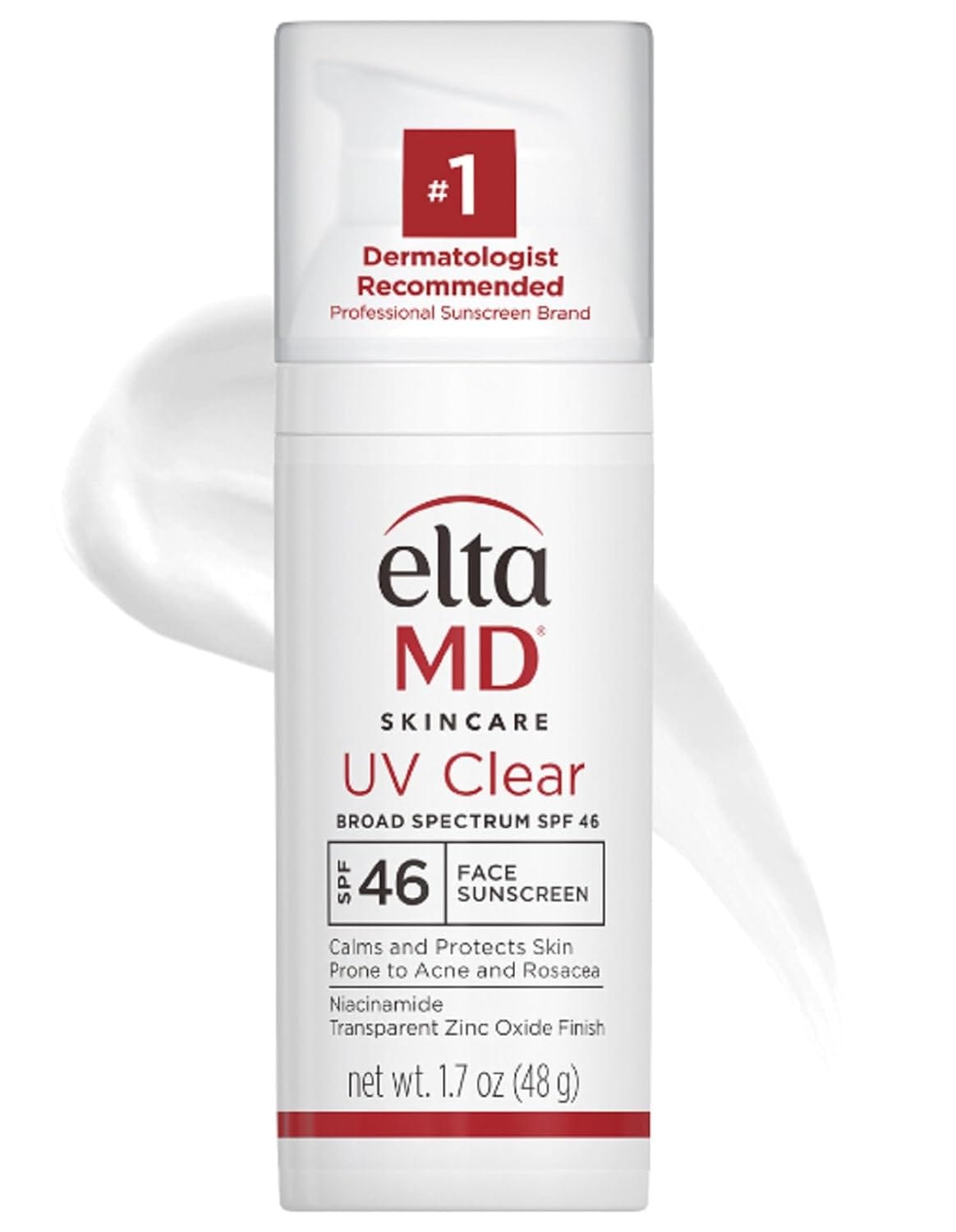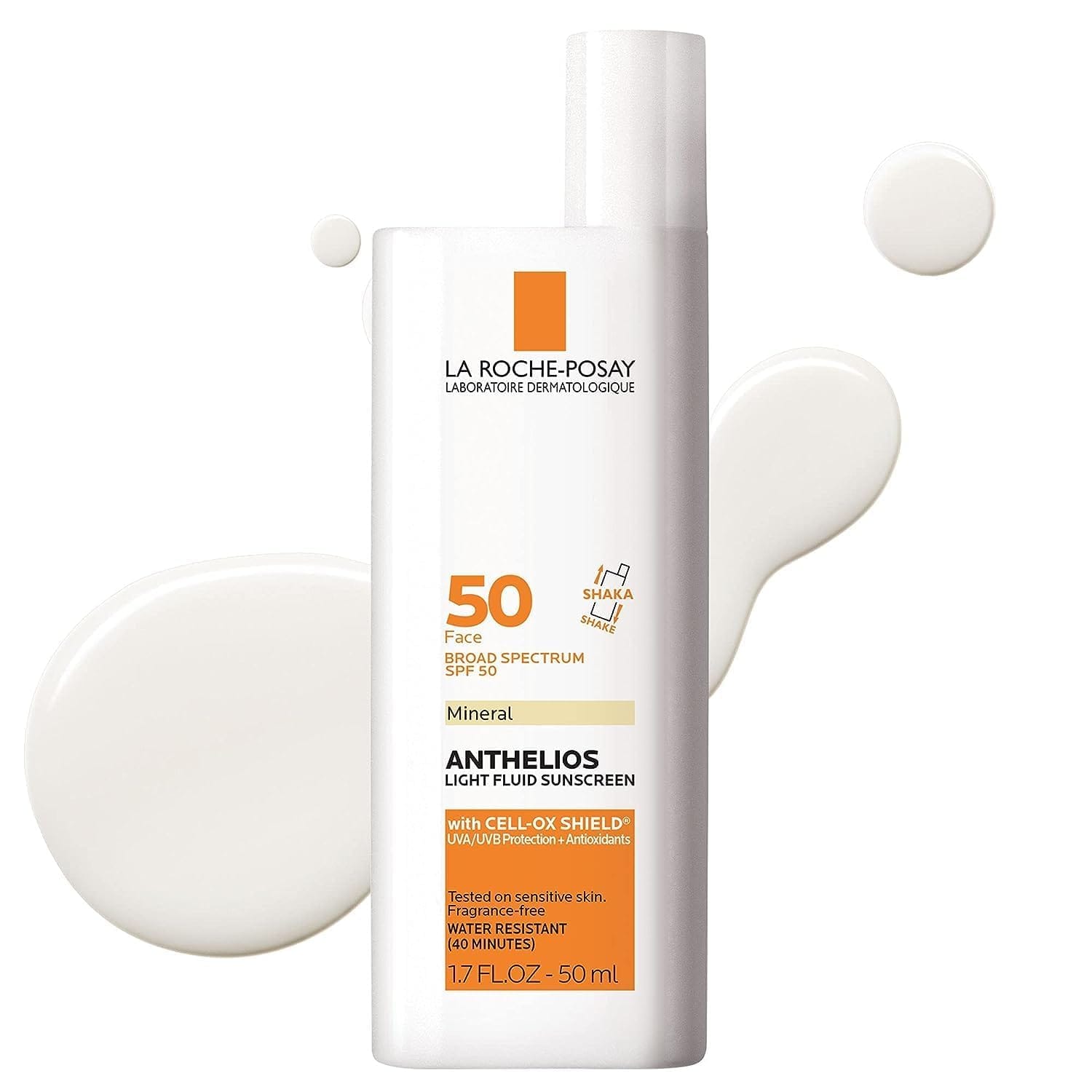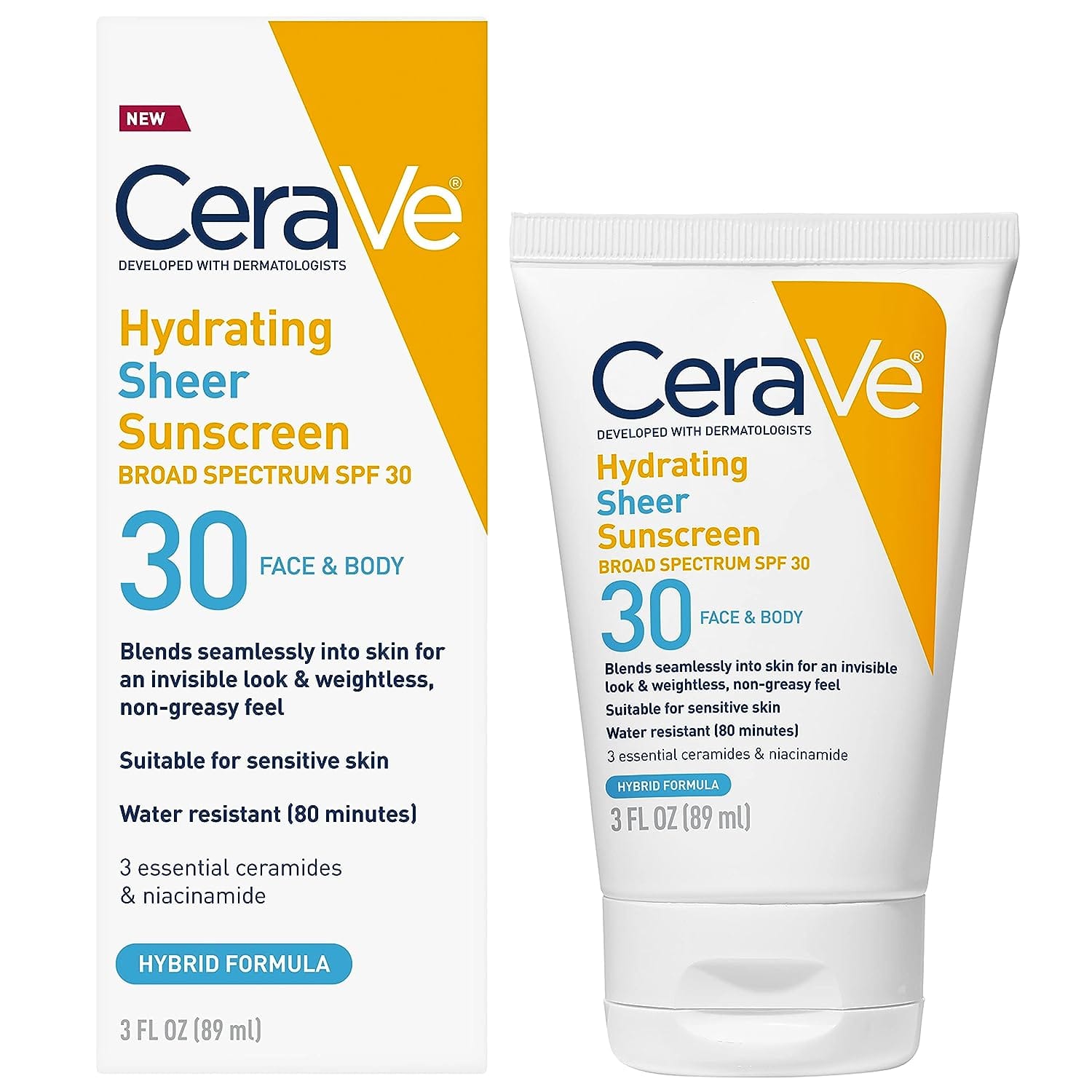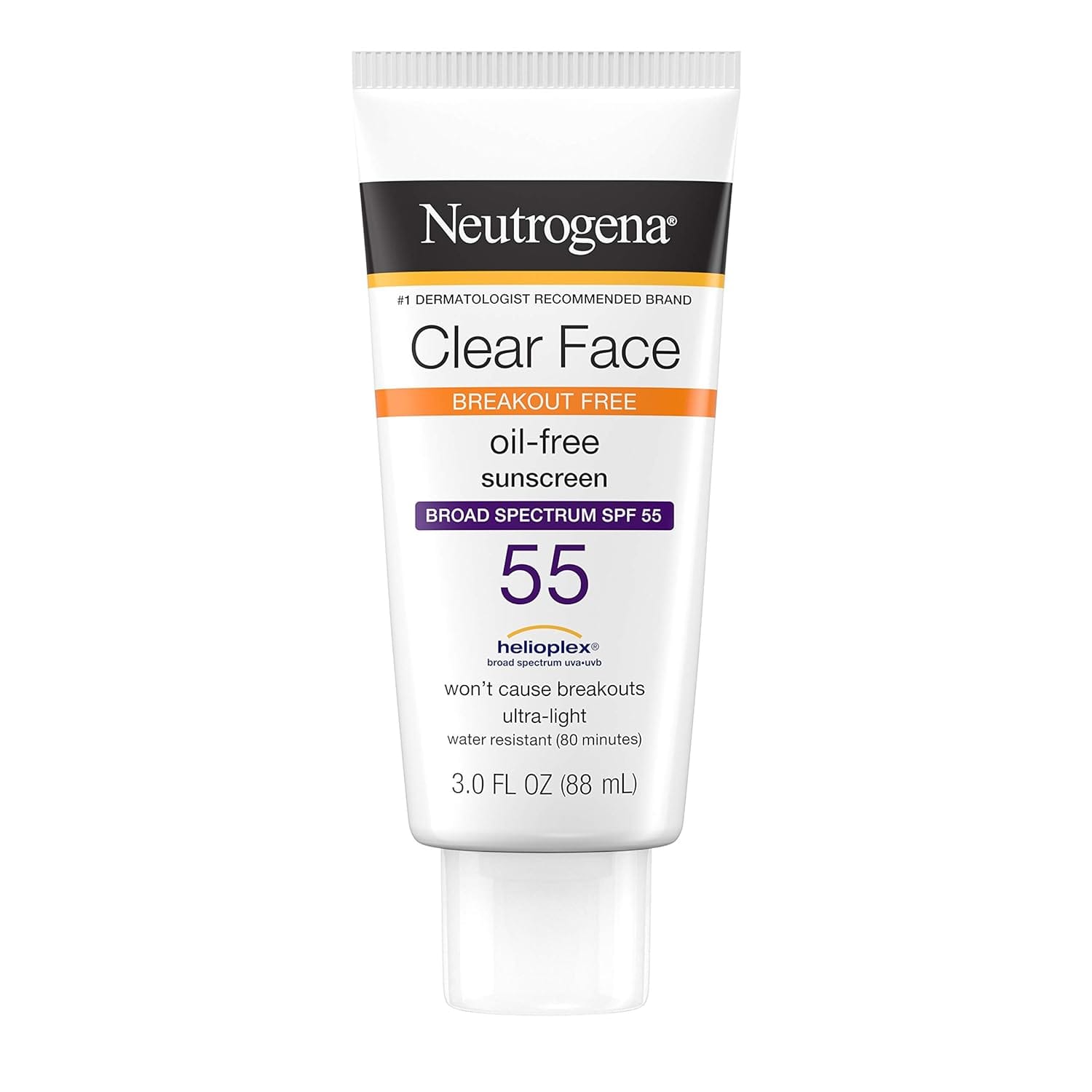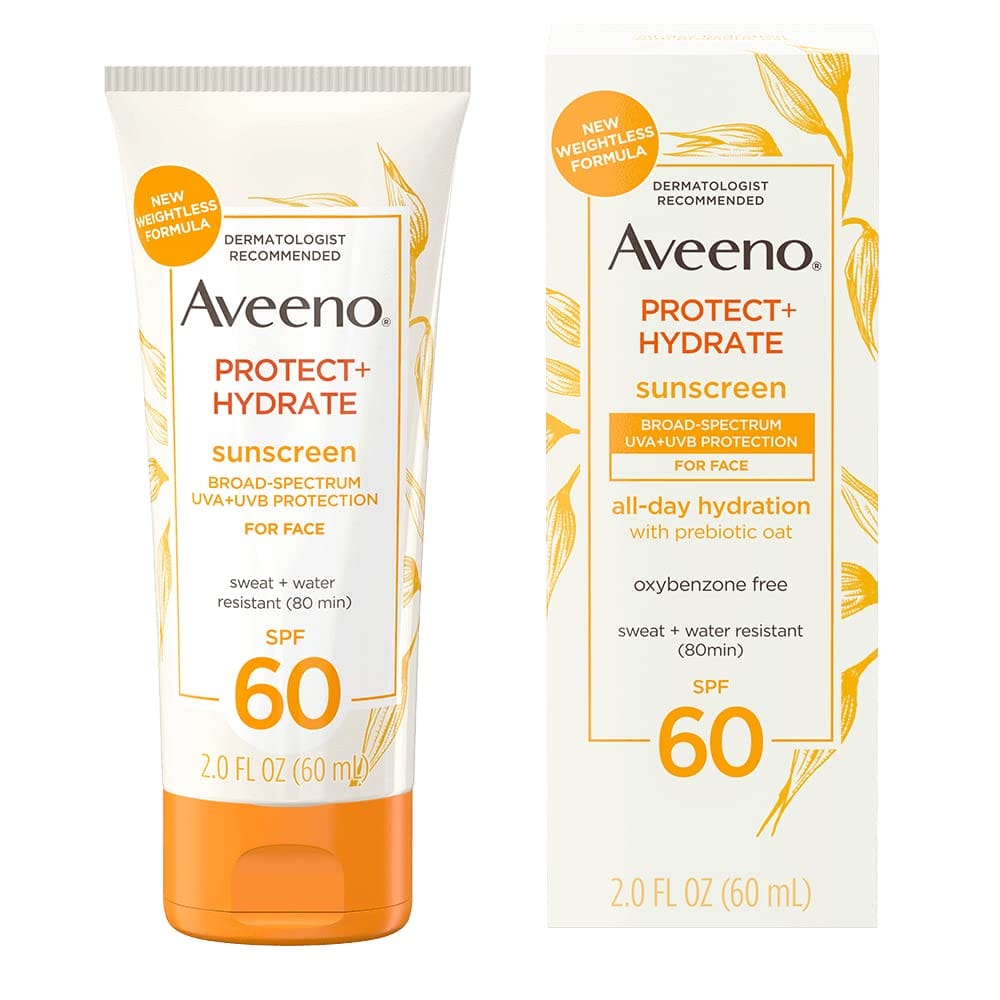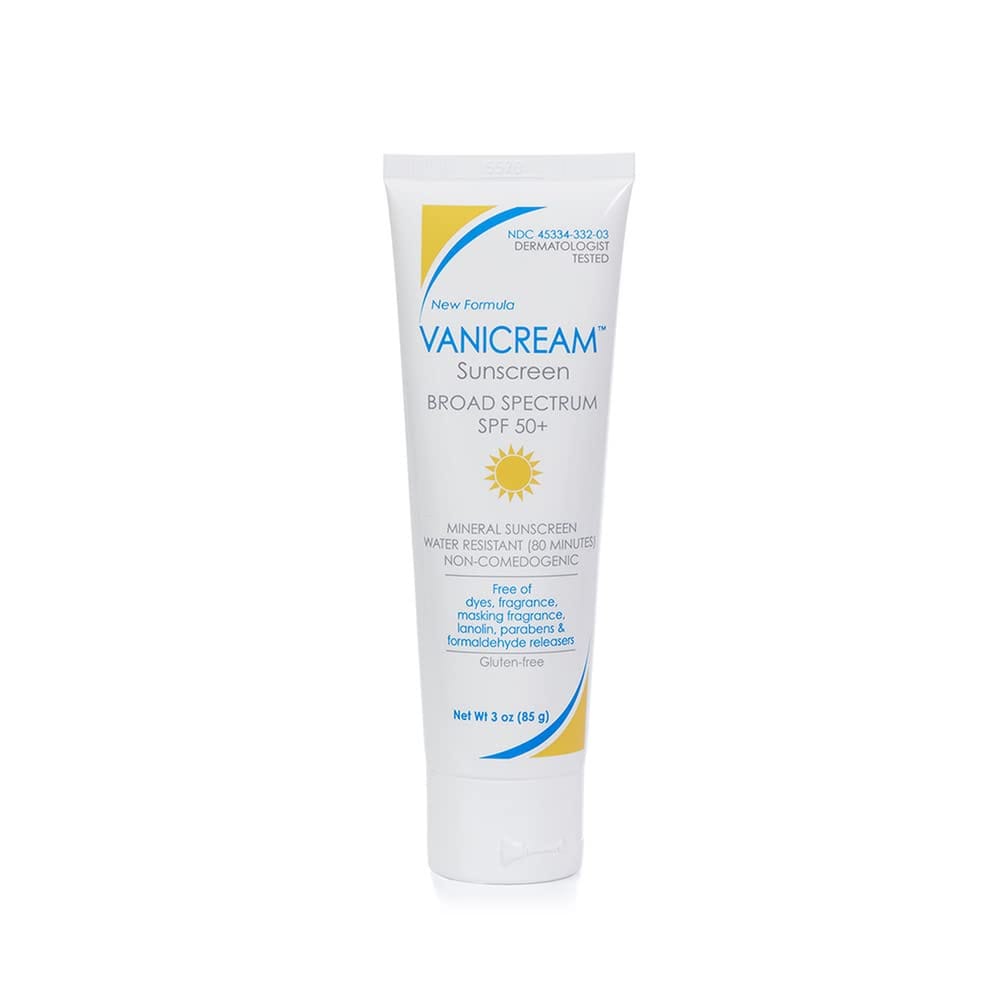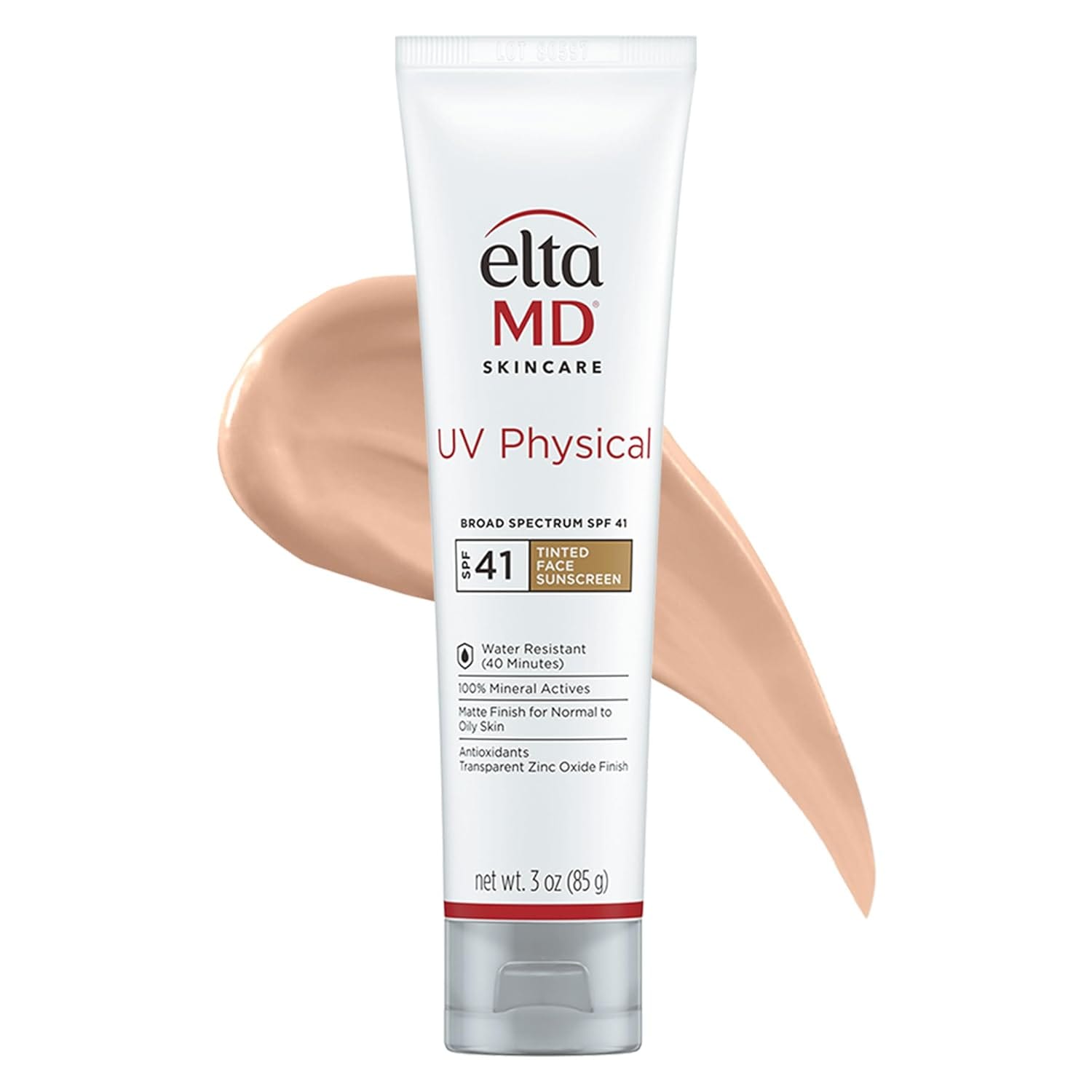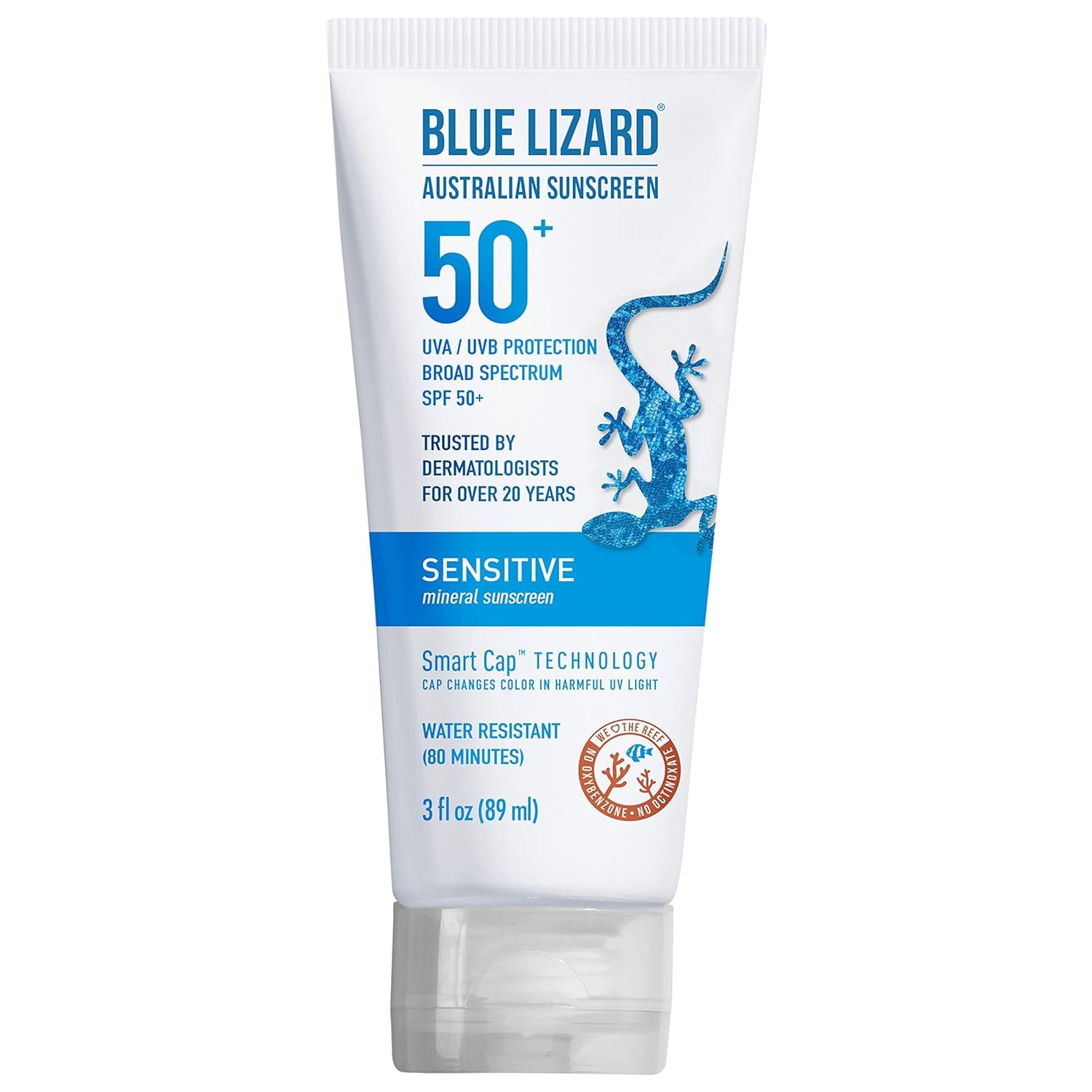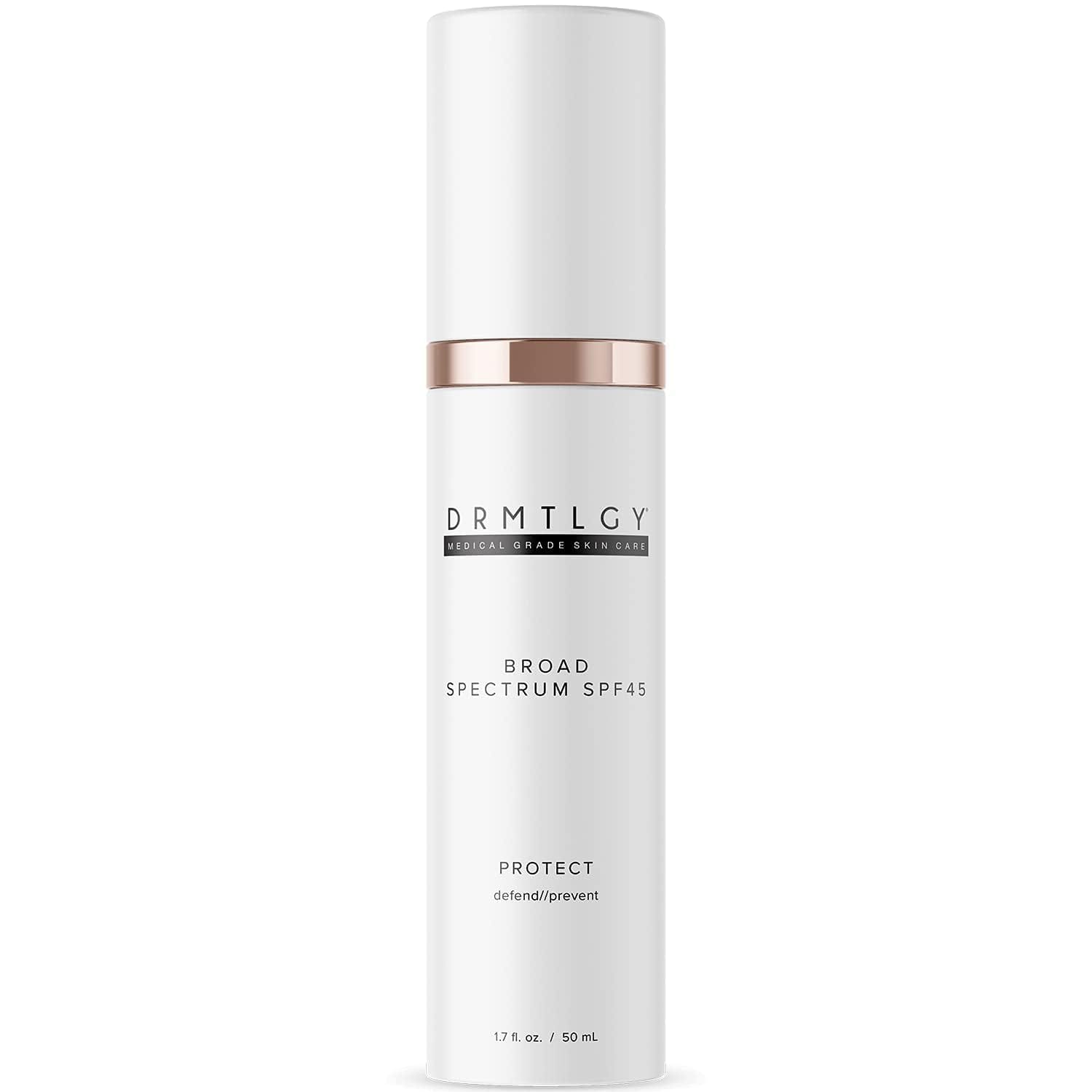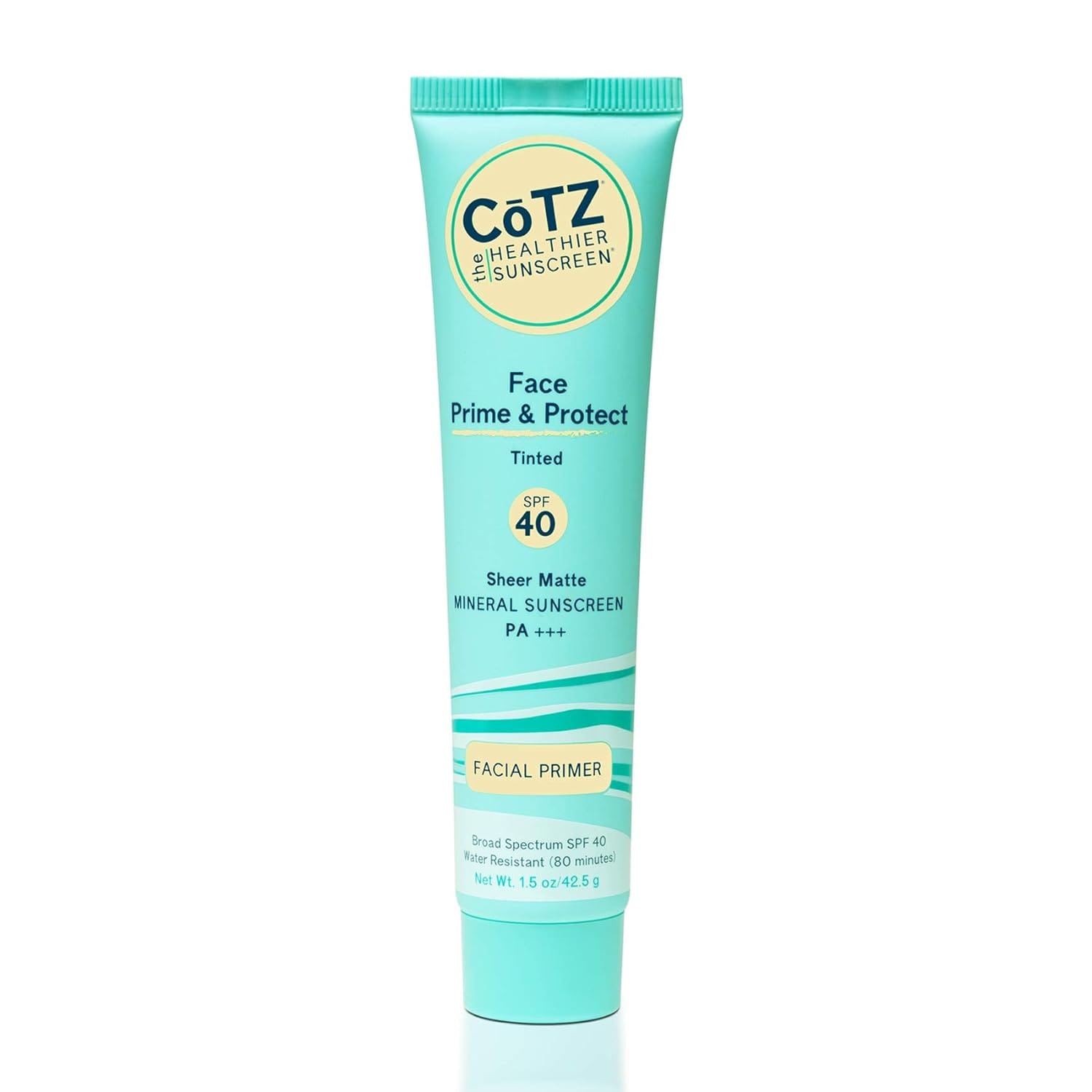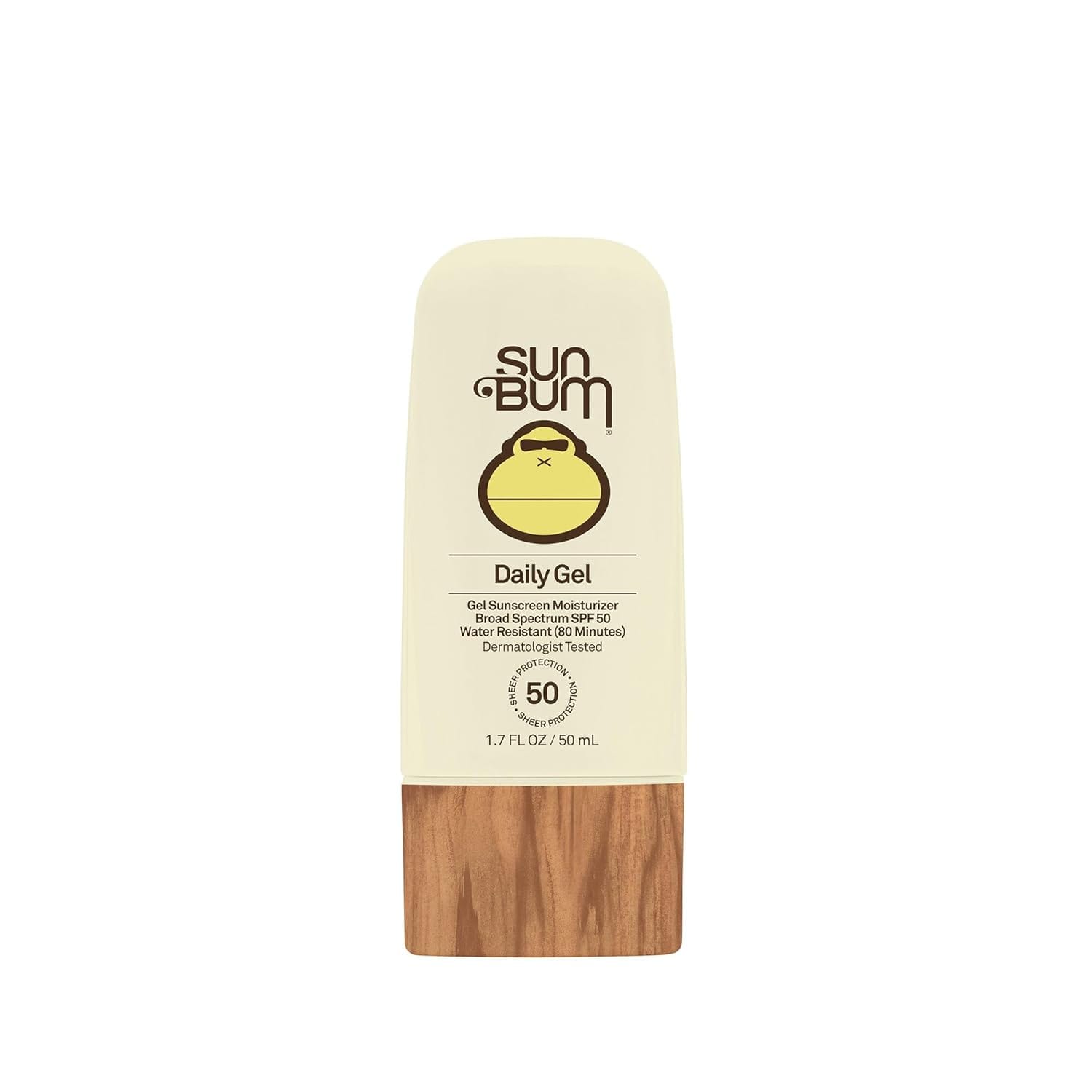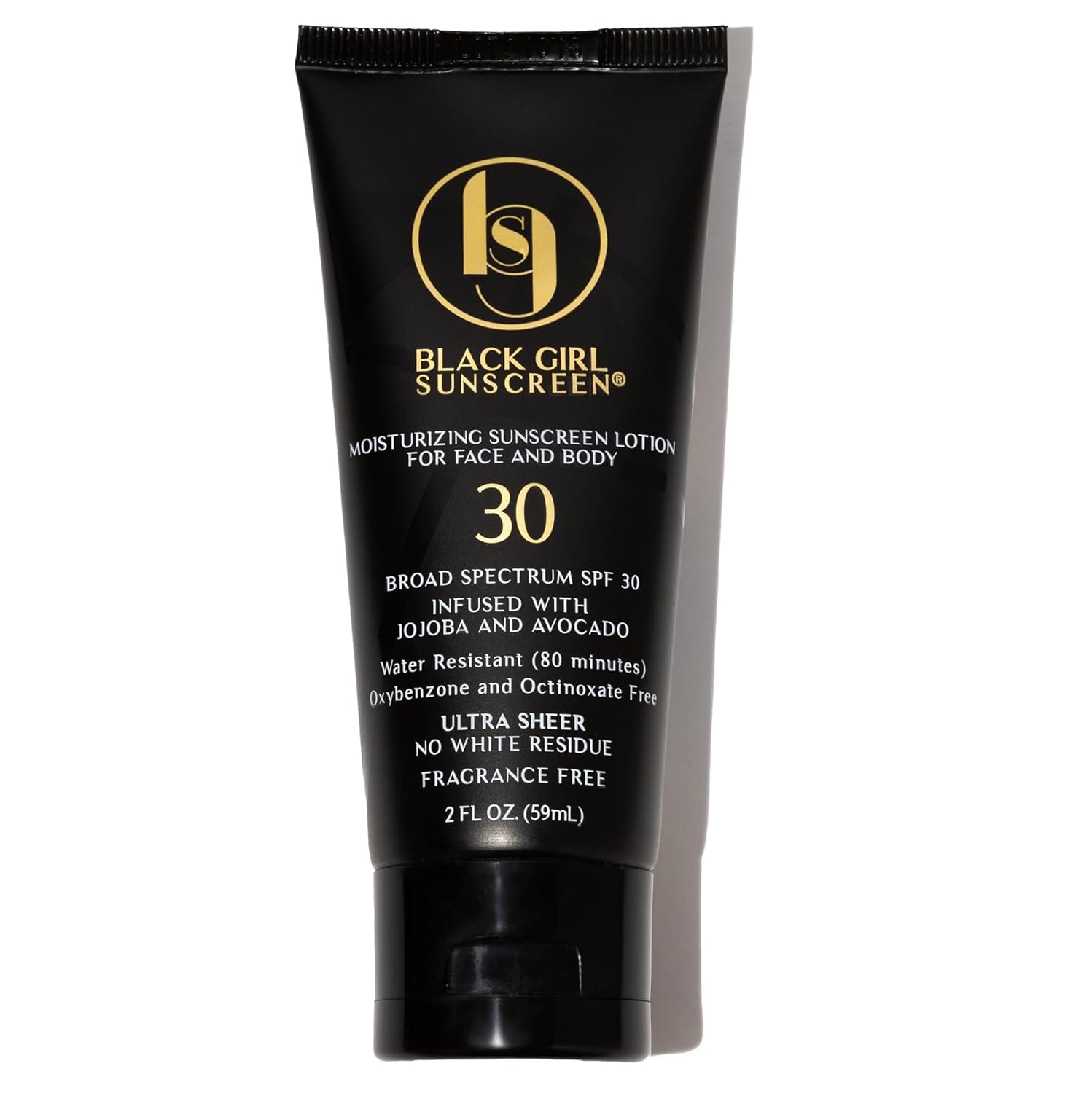The Top 10 Dermatologist Recommended Best Sunscreens for Acne-Prone Skin

Discover the top 10 dermatologist recommended best sunscreens for acne-prone skin. Find the perfect SPF for oily skin with these expert picks.
When it comes to safeguarding acne-prone skin from the sun's harmful rays, selecting the right sunscreen is going to make a big difference to protect against harmful UV/UVB damage.
Lightweight yet durable and long-lasting, your sunscreen should not melt off your cheeks and forehead at the first sign of sweat or oiliness, while remaining gentle enough not to exacerbate existing skin concerns.
In this comprehensive review, we delve into the top 10 sunscreens tailored for acne-prone skin, considering factors like SPF, size, pros, and cons.
Disclaimer: The information provided in this blog regarding acne is intended for general informational purposes only and should not be considered as medical advice. It is not a substitute for professional medical diagnosis, treatment, or advice. Always consult with a qualified healthcare provider or dermatologist for personalized recommendations and treatment options tailored to your specific skin condition.
Expert Advice from Board-Certified Dermatologists Recommend Sunscreens
Board-certified dermatologists advocate for sunscreens with active ingredients such as zinc oxide and octinoxate, ensuring comprehensive protection against UV damage.
Sunscreen is a critical component of daily skincare, especially for protecting the skin from the harmful effects of UV radiation. Understanding the variety of sunscreens available and their specific benefits can help you choose the right product for your skin type and needs. - Board-Certified Dermatologist

Here’s a breakdown of the types of sunscreens mentioned:
Facial sunscreens
Facial sunscreens should steer clear of dense ingredients such as coconut oil, mineral oil, beeswax, and silicones. These substances are prone to clogging pores and exacerbating acne breakouts, especially during warmer months. Use sunscreens that contain hydrating ingredients like glycerin or hyaluronic acid instead. Niacinamide is a fantastic addition to sunscreen, particularly for acne-prone skin, as it assists in regulating oil production and soothing inflammation and breakouts.
Mineral Sunscreen
Also known as physical sunscreen, mineral sunscreen uses active mineral ingredients like zinc oxide or titanium dioxide to create a physical barrier on the skin that reflects and scatters UV rays. The best mineral sunscreens are often recommended for sensitive skin because they are less likely to cause irritation. They are also preferred by those looking for a more natural sun protection option since they are reef safe and do not contain chemicals that could harm marine life.
Tinted Sunscreen
Tinted sunscreens are formulated with a hint of color to match skin tones or to provide a universal tint that blends into most skin types. These are particularly beneficial for those looking to even out skin tone, reduce the appearance of redness, or conceal minor blemishes while also protecting the skin from UV rays. Tinted mineral sunscreens can also help to counteract the white cast that some mineral formulas leave behind, making them more aesthetically pleasing for daily use.
Chemical Sunscreen
Chemical sunscreens absorb into the skin and then absorb UV rays, convert them into heat, and release them from the body. The active ingredients in chemical sunscreens can include avobenzone, oxybenzone, octisalate, octocrylene, homosalate, and octinoxate, among others. These sunscreens tend to be lightweight and more suitable for daily wear under makeup. However, they might not be the best choice for sensitive skin types or those looking to avoid certain chemicals.
Sunscreen for Oily and Acne Prone Skin
Sunscreen formulations designed for oily skin are usually non-comedogenic (meaning they won't clog pores) and oil-free. They often have a matte finish to reduce shine and may contain ingredients like silica or isododecane to help control oil production throughout the day. Lightweight formulas, such as gels or fluids, are often recommended for oily skin to prevent greasiness.
Products for oily and acne-prone skin should contain acne-fighting and anti-inflammatory components such as lactic acid and niacinamide. Fragrance-free formulas are also beneficial as they reduce the risk of irritation or allergic reactions, common concerns for sensitive or acne-prone skin. Lightweight textures are key to preventing that heavy or greasy feeling often associated with traditional sunscreens, making them more comfortable for everyday wear.
Sunscreen Lotions
Sunscreen lotions are traditional formulas that are easy to apply and ideal for dry skin types due to their moisturizing properties. They can be either chemical or mineral-based and often contain additional ingredients like aloe vera or glycerin to soothe and hydrate the skin.
Sunscreen in Skin Care Products
Incorporating sunscreen into your daily skincare routine is crucial for preventing sun damage, premature aging, and the risk of skin cancer. Regardless of the type of sunscreen you choose, look for broad-spectrum protection, which means it shields the skin from both UVA (aging) and UVB (burning) rays. An SPF (Sun Protection Factor)
PRODUCT REVIEW
Our team meticulously searched and curated a list of the best sunscreens to add to your shopping list this summer, ensuring you stay protected while enjoying the sun's warmth and rays.
This post includes affiliate links. To learn more, please check out the full disclosure with all the details.
- Active Ingredients: Zinc oxide, octinoxate
- SPF: 46
- Size: 1.7 oz
- Pros: Lightweight, non-comedogenic formula; contains niacinamide for soothing benefits
- Cons: Slightly higher price point
- Active Ingredients: Zinc oxide, octinoxate
- SPF: 50
- Size: 1.7 oz
- Pros: High SPF protection; oil-free formula ideal for oily skin
- Cons: May leave a slight white cast on deeper skin tones
- Active Ingredients: Zinc oxide
- SPF: 30
- Size: 3 oz
- Pros: Gentle, non-irritating formula with ceramides for skin barrier support
- Cons: Lower SPF compared to other options
- Active Ingredients: Avobenzone homosalate, octisalate, octocrylene, oxybenzone
- SPF: 55
- Size: 3 oz
- Pros: Oil-free and non-comedogenic; provides broad-spectrum protection
- Cons: May feel slightly greasy on oily skin types
- Active Ingredients: Zinc oxide, octinoxate
- SPF: 60
- Size: 2 oz
- Pros: Moisturizing formula; suitable for sensitive skin
- Cons: May not be suitable for very oily skin types
- Active Ingredients: Zinc oxide
- SPF: 50+
- Size: 3 oz
- Pros: Gentle formula suitable for sensitive skin; water-resistant
- Cons: Thicker consistency may feel heavy on the skin
- Active Ingredients: Zinc oxide, titanium dioxide
- SPF: 41 tinted
- Size: 3 oz
- Pros: Tinted formula provides sheer coverage; suitable for sensitive skin
- Cons: Tint may not blend seamlessly with all skin tones
- Active Ingredients: Zinc oxide, titanium dioxide
- SPF: 30
- Size: 5 oz
- Pros: Fragrance-free formula suitable for sensitive skin; water-resistant
- Cons: May leave a slight white cast on the skin
- Active Ingredients: Zinc oxide, Titanium dioxide, Hyaluronic Acid, Vit E
- SPF: 45
- Size: 1.7 oz
- Pros: Contains hyaluronic acid for hydration; broad-spectrum protection
- Cons: May feel slightly tacky upon application
- Active Ingredients: Titanium and Zinc
- SPF: 40
- Size: 1.5 oz
- Pros: Silky-smooth texture with a natural skin-tone tint; suitable for sensitive skin
- Cons: Smaller size may require more frequent repurchases
- Active Ingredients: Avobenzone 3 % Homosalate 9 % Octisalate 5 % Octocrylene 10 % Vitamin E and Antioxidants
- SPF: 50
- Size: Compact and portable stick format
- Pros: High SPF 50 protection against UVA and UVB rays
- Cons: May leave a slight white cast on deeper skin tones
- Active Ingredients: Avobenzone, Homosalate, Octisalate, Octocrylene
- SPF: 30
- Size: 3 fl oz (88.7 mL)
- Pros: Specifically formulated for melanin-rich skin, offering broad-spectrum protection without the unwanted white cast. Moisturizing formula enriched with jojoba and avocado oils to nourish and hydrate the skin.
- Cons: SPF 30 may not provide sufficient protection for prolonged sun exposure, requiring more frequent reapplication. May not be suitable for individuals with sensitivities to chemical sunscreen ingredients.
Don't depend just on using sunscreen. Your best strategy is to avoid sun exposure when possible.
Sun-protective clothing, which has become increasingly popular, is a nice addition to using sunscreen.
Remember that sunscreen needs to be reapplied approximately every two hours. The effect of chemical sunscreen wanes after you apply it, and most sunscreens tend to be sweated off.
Sun Protecting Checklist
According to Neutrogena
- Apply sunscreen every day! (To help prevent skin cancer, apply generous amounts of SPF 30 (or higher) sunscreen for everyday protection. Reapply often during outdoor activities, especially after swimming, perspiring, or using a towel.)
- Pick the right product. (Whether you're shopping or skiing, there's a sunscreen that's right for you. Look for cosmetics and moisturizers with sunscreen, as well.)
- Going out? Cover up. (If you plan to be outside for an extended period, remember to wear protective clothing. Wide-brimmed hats, sunglasses, long sleeves, and long pants help shield your skin from sun damage.)
- Be a shade seeker. (Try to avoid the sun during those hours when the sun's rays are the strongest--10am to 4pm.)
- Need vitamin D? Don't seek the sun. (Although UV radiation is one source of vitamin D, UV exposure also increases the risk of skin cancer. Get vitamin D safely through a healthy diet of vitamin supplements.)
- No tanning bed is 'safe.' (Tanning beds work by emitting UVA rays, which penetrate deep into the skin. Using tanning beds may increase the risk of some forms of skin cancer.)
Last Thoughts
Choosing the best sunscreen for acne-prone skin involves considering factors such as active ingredients, SPF, size, pros, and cons.
Dermatologist-recommended options offer a balance of protection and skincare benefits for a wide range of skin tones, ensuring that your skin stays healthy and radiant while being shielded from the sun's harmful effects.
More reads:

Thumbnail - Defensive Skincare: 10 Best Acne Scar Treatments to Prevent Acne Scarring
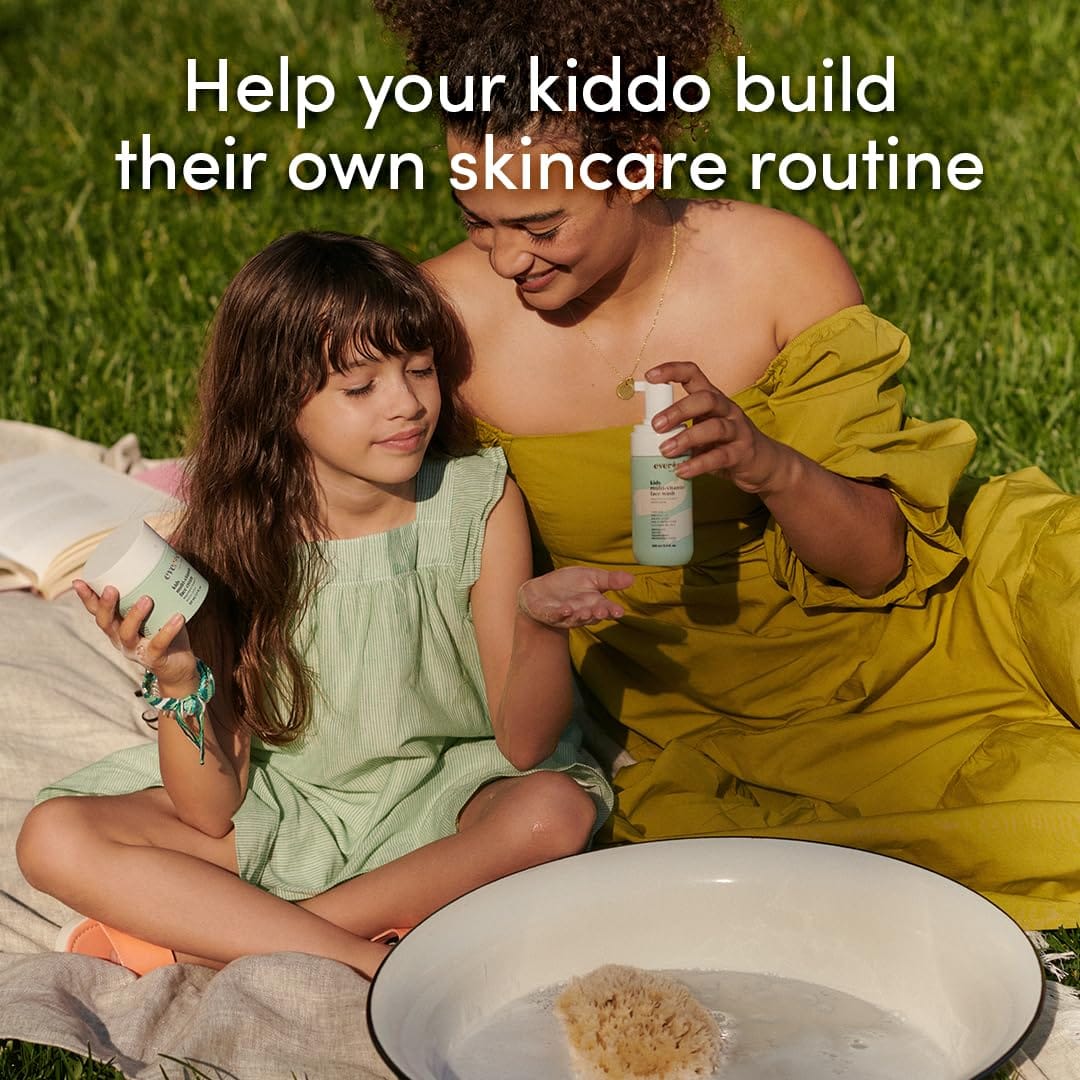
Thumbnail - Kid-Friendly Skincare Products
FAQs
We answer all your questions
Resource
- Harvard Medical School. The science of sunscreen. February 15, 2021. Harvard Health Publishing. https://www.health.harvard.edu/search?content%5Bquery%5D=sunscreen Accessed 22/3/2024
FAQs
We answer your questions
How do I choose the best sunscreen according to my lifestyle?
Finding the best sunscreen for your lifestyle starts with understanding your daily activities, skin type, and any skin concerns you may have, such as acne-prone skin or sensitive skin. For those spending a significant amount of time outdoors, look for a sunscreen with high SPF, ideally sunscreen SPF 50, and water resistance. If your lifestyle is more indoor-oriented, a daily sunscreen with at least SPF 30 is sufficient. Always consider sunscreens that cater to your specific skin type, such as mineral sunscreen for sensitive skin or sunscreen for oily skin.
What is the best sunscreen for acne-prone skin?
The best sunscreen for acne-prone skin according to dermatologists is typically a mineral sunscreen that contains zinc oxide or titanium dioxide. These ingredients are less likely to clog pores or cause breakouts. Brands like EltaMD offer options like EltaMD UV Clear, which is formulated specifically for clear skin and acne-prone skin types. Additionally, looking for oil-free and non-comedogenic labels can help ensure the product won't aggravate acne-prone skin.
Are there benefits to using tinted sunscreen for different skin tones?
Yes, tinted sunscreen can offer several benefits for various skin tones, including providing an even skin tone, masking mild imperfections, and often containing iron oxides that protect against blue light from digital devices. For those with acne-prone or sensitive skin, a tinted mineral sunscreen with zinc oxide can also help soothe the skin and reduce redness.
What should I look for in a sunscreen for oily skin?
For those with oily skin, it’s essential to choose a sunscreen that is oil-free and has a matte finish to prevent excess shine and help control sebum production throughout the day.

